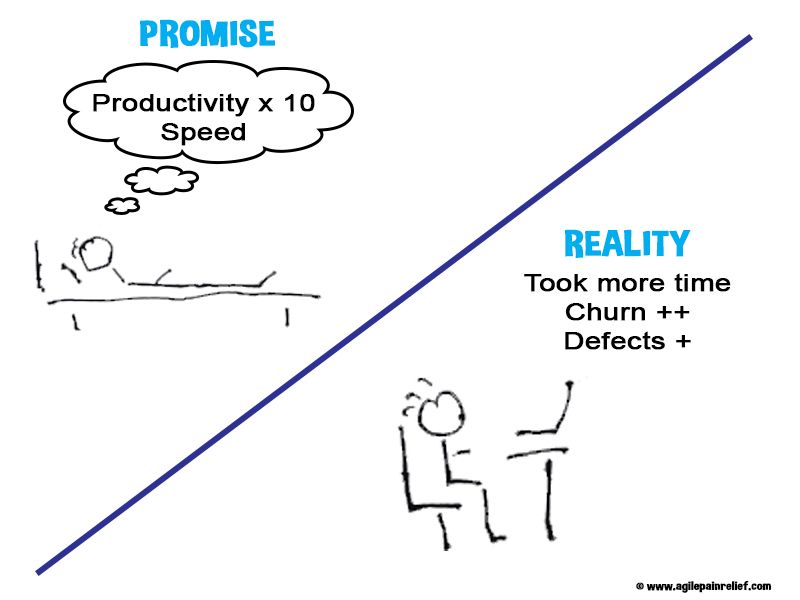Community of Practice
A Community of Practice (CoP) is a group that brings people with a common cause or purpose together on a regular basis. They can be formed around a role (e.g. ScrumMasters, Agile Testers, Usability) or an area of interest (e.g. Test Driven Development). The group meets on a regular basis to share activities, learnings and challenges.
Benefits:
- Mutual support - As a member of a community, you know that you’re not alone in the challenges you face.
- Shared knowledge across teams - By getting people to talk across different team boundaries, information about what has been learned moves organically.
- Speeds professional development - Seeing your peers learning, exploring, and gaining recognition can be personally motivating. In addition, the community gives people the opportunity to stand on the shoulders of their peers. A colleague takes the time to share what they’ve learned in a problem space, and others don’t have to do the same digging again.
- Gives people a moment to shine - As suggested by the SCARF model, a sense of personal status is an important motivator. Having a moment to share your learnings and shine in front of your peers can be very motivating. This can be especially important in the Agile world because it allows the person to have some visibility outside their team.
- Breaks down silos and builds relationships across teams - Because CoPs work outside of the formal organizational structure and have open interest based membership, they help people who wouldn’t normally get to know each other build relationships.
- Solve problems that can’t be solved inside a team - A CoP brings together a diverse group of people, sparking new ideas. Even when the community can’t solve the problem directly, it can help find other examples of the problem across the organization. When we can show more than one team is affected by a problem, it is easier to get management support in solving.
- Alignment between people across different teams - Agile approaches promote self-organization. We also need standards to be created and maintained. These two ideas appear in contradiction. CoPs can help create standards with decision-making rooted in the community, thus honoring the Agile expectation of self-organization.
They seem new to many in the Agile Community, having been popularized by LeSS Communities and the infamous Spotify Model.
For a Community of Practice to work effectively, leadership must acknowledge the importance of team members spending time on improving their professional skills.
Resource Links
- Agile Community of Practice - Greger Wikstrand
- A Practical Journey to Communities of Practice
- Building a Scrum Master Community
- Building a ScrumMaster Community of Practice - Webinar
- Communities of Practice: The Missing Piece of Your Agile Organisation
- Developing a Community of Practice
- Guilds and Communities of Practice
- How to Create an Agile Community of Practice
- Introduction to communities of practice
- Product Communities of Practice: Everything You Need to Know — Petra Wille
